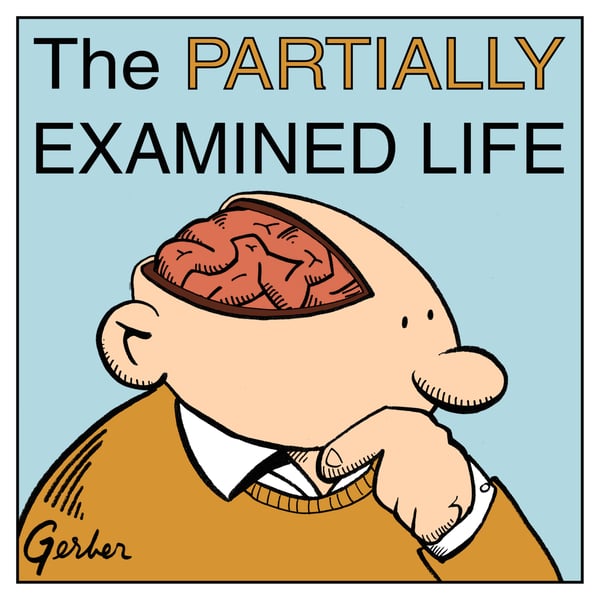PEL Presents (SUB)TEXT: The Emptiness of Signification in Shakespeare's "The Winter's Tale" (Part 1 of 6)
The Partially Examined Life Philosophy Podcast
Mark Linsenmayer
4.6 • 2.3K Ratings
🗓️ 26 November 2023
⏱️ 371 minutes
🧾️ Download transcript
Summary
When King Leontes accuses his pregnant wife of adultery, the nobleman Antigonus assumes that Leontes has been “abused and by some putter-on”—in other words, some Iago-like villain has been putting malevolent ideas into his head. In fact, Leontes is the father of his own misconceptions, just as he is the father of his wife’s children. But unlike his children, his ideas might be said to have no mother; they lack corroboration, which is to say, collaboration with a source outside himself. How, then, do we account for the seemingly spontaneous generation of his thoughts? How can false apprehensions arise out of nothing? And what price must one pay for bearing these misconceptions, these “nothings,” into the world? In this episode, the first part of a six part discussion, Wes & Erin discuss one of Shakespeare’s last plays, "The Winter’s Tale."
Transcript
Click on a timestamp to play from that location
| 0:00.0 | You're listening to an airwave media podcast. When King Leonttees accuses his pregnant wife of adultery, the nobleman |
| 0:15.4 | Antigonus assumes that Liantees has been abused by some putter on. In other words, |
| 0:20.6 | some Iago-like villain has been putting malevolent ideas into his head. |
| 0:25.5 | In fact, Liantees is the father of his own misconceptions, just as he is the father of his wife's |
| 0:30.5 | children. But unlike his children, his ideas might be said to have no mother. They lack corroboration, which is to say collaboration with a source outside himself. |
| 0:41.0 | How then do we account for the seemingly spontaneous generation of his thoughts? |
| 0:46.4 | How can false apprehensions arise out of nothing? |
| 0:49.5 | And what price must one pay for bearing these misconceptions, these notings into the world? |
| 0:55.0 | In this episode, the first part of a multi-part discussion, |
| 0:58.0 | we'll be talking about one of Shakespeare's last plays, |
| 1:01.0 | The Winter's Tale. |
| 1:02.0 | This is Aaron Alonick. This is Wes Allwyn. Last Plays, The Winter's Tale. |
| 1:02.8 | This is Aaron Alonick. |
| 1:04.0 | This is Wes Allwen. |
| 1:05.4 | And you're listening to subtext. |
| 1:09.6 | OK, Wes, so The Winter's Tale is, |
| 1:12.4 | Shakespeare's possibly his second to last play is that right or third to last I was looking at a chronology so it's |
| 1:20.3 | After sibling supposedly and before the tempest Henry the 8th and two noble kinsmen so |
| 1:27.4 | Okay, 1610 or 1611 is that right? Yes. Okay. |
| 1:33.0 | So, but really his second to last great play, I'd argue, right? |
| 1:37.6 | His ultimate great play. |
| 1:39.6 | So it's classified as a |
... |
Please login to see the full transcript.
Disclaimer: The podcast and artwork embedded on this page are from Mark Linsenmayer, and are the property of its owner and not affiliated with or endorsed by Tapesearch.
Generated transcripts are the property of Mark Linsenmayer and are distributed freely under the Fair Use doctrine. Transcripts generated by Tapesearch are not guaranteed to be accurate.
Copyright © Tapesearch 2025.

